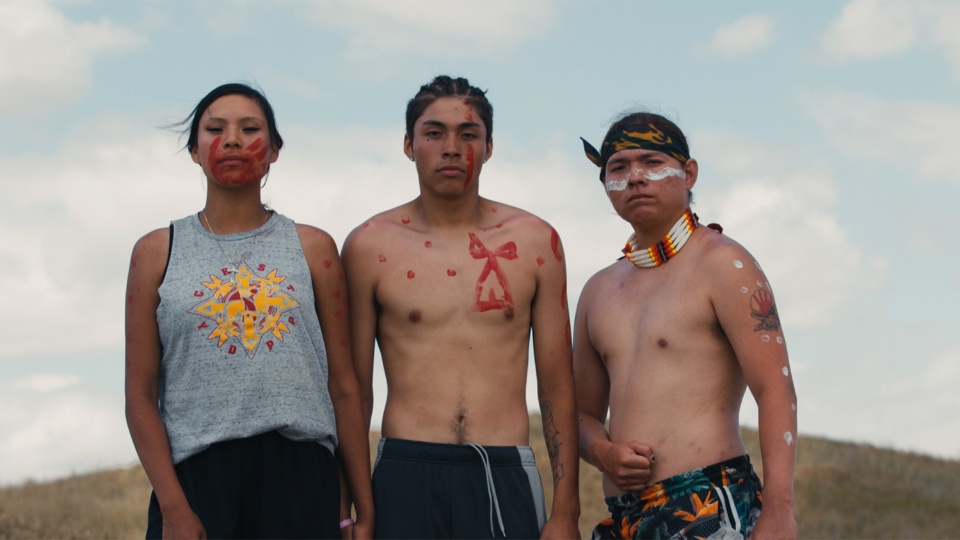
In the United States government’s long record of broken treaties, land theft, and genocide, the taking of the Black Hills ranks as perhaps one of the most disgraceful examples of imperial aggression against an Indigenous people.
This is not just a historical episode; it is ongoing to this very day. The magnificently illuminated and stunningly stellar documentary film Lakota Nation vs. United States tells the story. It was screened at the Belcourt Theater in Nashville from Sept. 1 to 6.
The film was picked up for the Belcourt by Allison Inman, Director of Education and Engagements at the theater, who saw it at the Milwaukee Film Festival in April of this year.
Some information on the theater is in order first of all. The Belcourt is a unique Nashville institution with a historic past and deep community ties. It is a non-profit cultural facility dedicated to presenting the most notable of independent, documentary, world, repertory, and classic cinema. The Belcourt believes in “the power of film.”
The opening night program for this documentary began with a land acknowledgment given by Annabelle Littlejohn-Bailey, American Samoan and President of the Indigenous Scholars Organization of Vanderbilt University.
Lakota Nation vs. United States kicked off the Doc Spotlight Series for the fall at the Belcourt. The two-hour documentary chronicled the perfidious treatment of the Lakota people by the federal government. Underlying the brazen theft of the sacred Black Hills was the drive of imperial greed for the resources, primarily gold, beneath the hallowed earth there, which is regarded with reverence by the Lakota people.
The documentary, written and directed by celebrated Lakota poet Layli Long Soldier and co-directed by Jesse Short Bull, is a resounding herald to the never-ending resistance of the Native people who hold the Black Hills as a source of resonating identity and existence.
A historical perspective will give the uninitiated viewer a greater
appreciation of this heroic struggle by the Lakota over the decades in
the face-off against the most powerful and predatory enemy ever to trod
the earth, the United States government. 
The background to the seizure of the Black Hills is the violation of the Fort Laramie Treaty of 1868, which promised that the Great Sioux Reservation, including the Black Hills, would be “set apart for the absolute and undisturbed use and occupation of the Indians,” meaning, of course, the Lakota. The treaty ended the conflict known as “Red Cloud’s War,” in which Indigenous forces defeated the U.S. military.
Following another U.S. defeat in June 1876 at the Battle of the Little Horn and the subsequent military reversal of the Lakota and their allies, the U.S. government imposed the Act of February 28, 1877, which stopped all food rations to the Lakota until they ceded the Black Hills to the United States.
This infamous legislation, also termed the “Sell or Starve Act,” was a direct breach of the 1868 Fort Laramie Treaty and became and remains the main focal point of legal contention over possession of the Black Hills. This is an ongoing and hideous cardinal treaty violation largely unparalleled in the odious U.S. history of treaty-breaking.
In June 1979, the U.S. Court of Claims ruled that the 1877 Act that seized the Black Hills was in violation of the Fifth Amendment prohibition on taking property without just compensation (which also implicitly meant that the taking was in violation of the Treaty of 1868). Money was awarded which the Lakota refused to accept because acceptance would mean termination of the claim that the Black Hills be returned to the Lakota. The United States appealed the Court of Claims decision to the U.S. Supreme Court.
In March 1980, the Supreme Court ruled, in United States v. Sioux Nation of Indians, that just compensation had not been paid for the taking of the land and ordered that such compensation “be paid.” The Lakota again refused the money and uncompromisingly demanded the return of the Black Hills to tribal jurisdiction.
But back to the film. It is filled with historical material, contemporary footage, and interviews with Indigenous leaders (some of whom I recalled from being at the Standing Rock protests in 2016). It is an inspiring reminder that the struggle for Indigenous liberation continues gloriously, courageously, and brilliantly.






No comments:
Post a Comment
Please leave a comment.